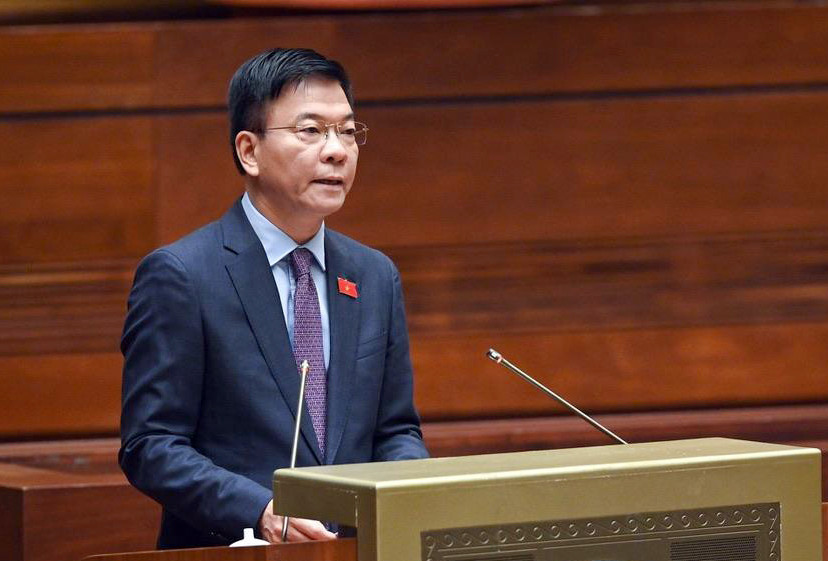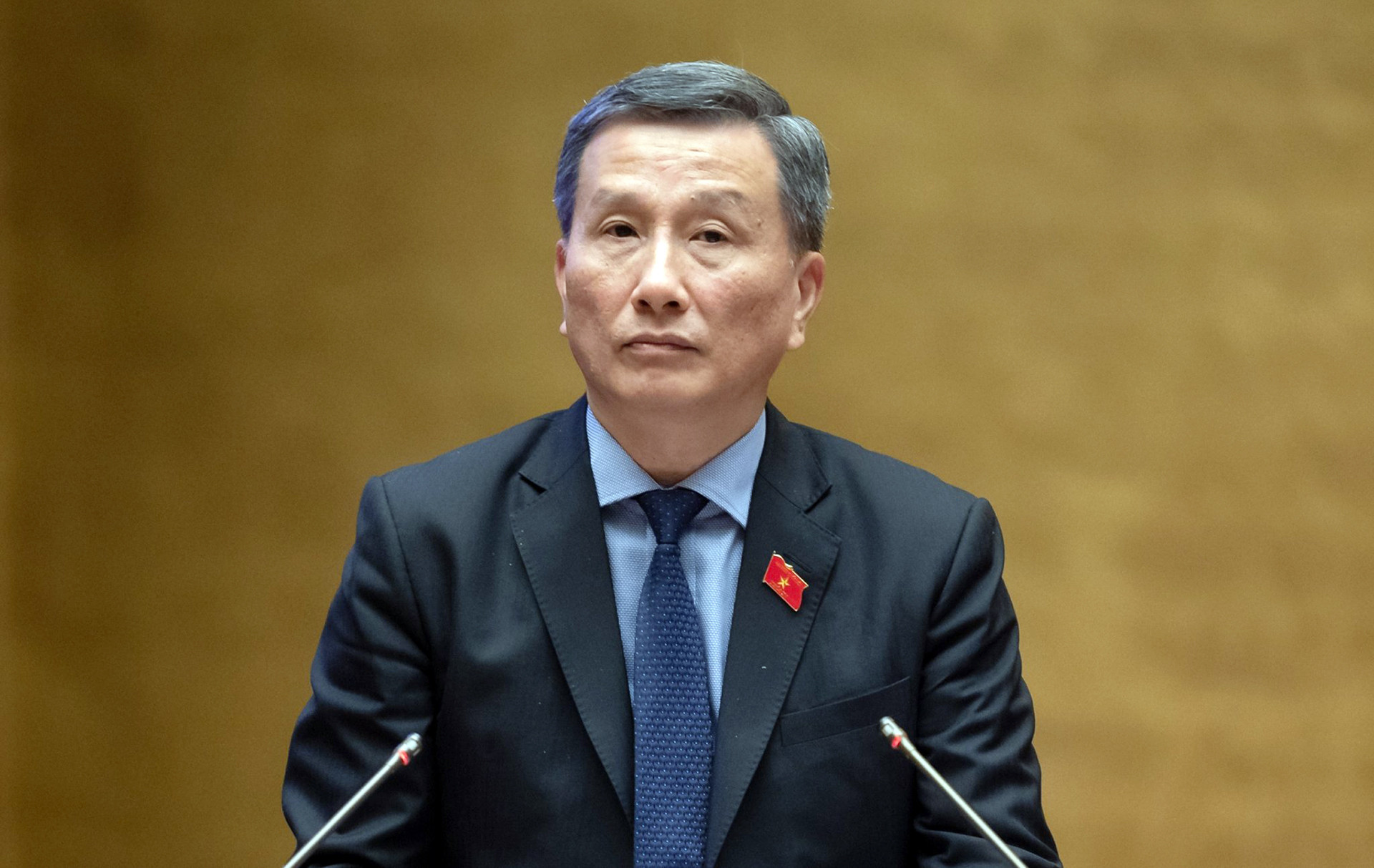Deputy Prime Minister Le Thanh Long presented a streamlined draft of the Digital Technology Industry Law to the National Assembly this morning. The proposed law, consisting of 8 chapters and 73 articles, aims to develop the digital technology industry into a major contributor to Vietnam’s economy.
According to the Deputy Prime Minister, the law seeks to:
Foster a supportive environment for digital technology enterprises.
Gradually transition Vietnamese companies from assembly and outsourcing to innovation, design, integration, production, and mastery of core technologies within Vietnam.
Contribute to building a digital government and advancing the digital economy and society.
“The Digital Technology Industry Law will replace provisions related to IT and IT services in the existing Information Technology Law, while introducing new regulations that align with contemporary development,” said Deputy Prime Minister Le Thanh Long.
The draft law institutionalizes the Party's directives and State policies for developing the digital technology industry. It addresses current shortcomings by analyzing and evaluating the implementation of existing legal provisions and proposes practical policies to create a clear legal framework for digital products and services.

The draft outlines key elements for advancing the digital technology industry, including research and development (R&D), infrastructure, ecosystems, products, services, technical standards, and human resources.
Special attention is given to:
Encouraging R&D and cultivating a workforce of high-quality experts and researchers.
Establishing modern research centers and laboratories.
Developing markets for digital technology enterprises through investment incentives and preferential procurement of domestic products and services.
Artificial intelligence (AI), a core digital technology, is defined and addressed in the draft, with principles for its management and development entrusted to the Government. These principles emphasize:
Transparency and accountability.
Fairness and non-discrimination.
Respect for ethical values, privacy, inclusivity, and security.
Risk-based governance and international cooperation.
Regarding semiconductors, the draft expands its focus from "semiconductor chips" to the broader "semiconductor industry" to encompass all stages of semiconductor manufacturing and align with national development strategies.

Le Quang Huy, Chairman of the National Assembly’s Committee on Science, Technology, and Environment, stressed the importance of a legal framework to regulate AI development:
“Vietnam needs a legal basis to harness the strengths of AI while mitigating its potential adverse impacts on economic and social life.”
The committee supports the draft but recommends adding provisions to address AI-related risks, including ethical principles and mechanisms for utilizing state data for AI research and development by Vietnamese enterprises.
The committee emphasized creating policies to support and incentivize digital technology enterprises, such as:
Attracting foreign investment and capital.
Offering reasonable tax incentives.
Allocating state budget resources for R&D in digital technologies, focusing on state-owned enterprises with the capacity to develop national priority products.
The committee proposed controlled testing mechanisms for digital products and services, recommending:
Limits on trials to protect markets and consumers.
Legal exemptions for civil, administrative, and criminal liability during controlled trials and follow-up activities.
Expanding trial subjects from “digital convergence products and services” to “digital technology products and services.”
Quang Phong